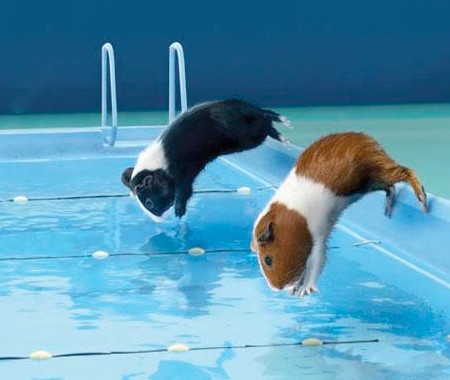This is a guest post from Martin Hardie, an Australian legal academic at Deakin University Law School. It was originally published at Deakin Speaking earlier this week.
As Spain’s Operacion Puerto trial neared the end of its second week, the Australian Crime Commission has released a report that exposes what it calls widespread doping in many Australian sports along with links to organized crime involved in the supply of doping products and match fixing. This report follows up the USADA Armstrong case and further exposes the lie peddled in the Anglo American world that doping in sport is something that only happens somewhere else, for example in European countries like Spain or in sports like cycling.
Despite this, in the wake of the Crime Commission report, the chief of Australian’s anti-doping agency, ASADA, Aurora Andruska, continued to tell the media that Australian athletes are more morally upstanding and less likely to dope than those of other countries. This claim echoes the one made by the Anglophone cycling media and the UCI for many years: that Anglo-American athletes were much cleaner and fairer than their counterparts in countries such as Spain. In a post-Armstrong sporting world and following the Crime Commission report, Andruska’s repetition of this rhetoric appears to be a little out of synch with reality.
On twitter, the Australian businessman behind the Change Cycling Now group, Jaimie Fuller, has applauded the recent efforts by the Australian Government as another example of how Anglos do it so much better than the Spanish.
This is despite the fact that Spain is still the only country to tackle the doping issue at its source. By focusing upon the trafficking and supply of doping products Guardia Civil Operaciones such as Mamut and Puerto have exposed the importation of doping products from the Gropep laboratory which was established with Australian Government money.
They have also tackled the problem as a health and systemic issue rather than of individual moral failings by sports people. Rather than applauding this approach critics such as Fuller have sought to condemn what they call the ongoing coverups by the Spanish Government and Courts in relation to Puerto. However, people who are quick to condemn Spain, were very silent and did not scream “cover up” when the Australian Prime Minister, Julia Gillard, refused to publicly release the full detail of the Crime Commission report.
The problem for the Australia Government now is that it appears that the public version of the Crime Commission report is just the tip of the iceberg. The Government and ASADA are in damage control and the countries top football leagues (Australian football’s AFL and Rugby League’s NRL) are in crisis. Given one team Essendon, faces the possibility of having most of its team banned, the head of the AFL Andrew Demetriou had to go so far to calm public concern by reassuring them that the football season would still commence as planned.
To make matters worse, Australia’s national broadcasting network, the ABC has suggested that there exists, buried deep in a vault, an investigation that exposes institutionalised doping practices in a Government funded Olympic Sport. In preparing a report for the Commonwealth Government investigators interviewed Australian Olympic athletes. One interview documents a ‘don’t ask questions’ approach which sounds eerily similar to the stories of the old East Germany and includes claims by athletes that in the Australian Institute of Sport (AIS) environment they are treated as guinea pigs and told by Institute staff to take performance enhancing drugs which in some cases have led to adverse health effects. Claims such as this are similar to those recently made by the former track cyclist Martin Vinnicombe concerning his interaction with AIS staff in the 1980s and 1990s.
As a result of the cover up of the report its full details of the report are still unknown, but, one thing we do now know for certain is that when it comes to doping practices, for too long the Anglo American world has wrongly pointed the finger elsewhere.








Crikey is committed to hosting lively discussions. Help us keep the conversation useful, interesting and welcoming. We aim to publish comments quickly in the interest of promoting robust conversation, but we’re a small team and we deploy filters to protect against legal risk. Occasionally your comment may be held up while we review, but we’re working as fast as we can to keep the conversation rolling.
The Crikey comment section is members-only content. Please subscribe to leave a comment.
The Crikey comment section is members-only content. Please login to leave a comment.